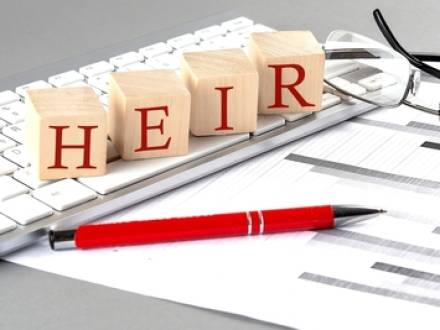What Happens if an Heir Refuses an Inheritance in Texas?
 Even with an estate plan in place, sometimes issues can come up following a person’s death. While it is hard to imagine refusing an inheritance, it does happen from time to time. And, there are some very valid reasons for doing so. In Texas, if a person chooses to refuse an inheritance, it is done through a process called a disclaimer. It is important to understand how Texas law handles refused inheritances, should the issue arise. A Bosque County, TX estate planning lawyer can help you plan for a potential refusal of an inheritance, or if you are the person refusing the inheritance, an attorney can guide you through the process.
Even with an estate plan in place, sometimes issues can come up following a person’s death. While it is hard to imagine refusing an inheritance, it does happen from time to time. And, there are some very valid reasons for doing so. In Texas, if a person chooses to refuse an inheritance, it is done through a process called a disclaimer. It is important to understand how Texas law handles refused inheritances, should the issue arise. A Bosque County, TX estate planning lawyer can help you plan for a potential refusal of an inheritance, or if you are the person refusing the inheritance, an attorney can guide you through the process.
Why Would an Heir Refuse an Inheritance?
There are several reasons why an heir might choose to refuse an inheritance, including:
More Burden Than Benefit
Inherited property could turn out to be more of a burden than a benefit. The land may have a lien, significant maintenance and repairs may be required, property taxes could be very high, or there may be environmental issues that must be sorted out.
Creditor Claims
The person inheriting may fear creditor claims, particularly if he or she is contemplating filing for bankruptcy. If the individual owes back taxes, back child support, or back alimony, the inheritance may be taken to pay these debts.
The Heir is In the Middle of a Divorce
If the heir is currently involved in a divorce, he or she may not want to share the inheritance with a soon-to-be ex-spouse. Depending on the size of the inheritance, it can potentially complicate a divorce, including the division of marital assets, alimony, and child support payments.
Nursing Home Eligibility May Be Compromised
If the heir is older, there may be legitimate concerns regarding Medicaid eligibility for nursing home care or other types of long-term care planning. Medicaid only allows a certain level of assets when asked to pay for long-term care. The inherited assets could disqualify an individual from Medicaid, or Medicaid would take the assets.
What is the Legal Process of Disclaiming a Texas Inheritance?
Timing is critical when filing a disclaimer (Sec. 240.052)for a Texas inheritance. The disclaimer must be made within nine months of the decedent’s death. A disclaimer makes it as though the heir died before the decedent for the purposes of inheritance. Once an heir files a disclaimer, the property passes to the next eligible heir or beneficiary under the will or intestacy laws if there is no will.
The person who disclaims an inheritance cannot have accepted any benefit from the property prior to disclaiming. If he or she collected rent from the property, paid taxes, lived in the property, or made repairs, this may jeopardize the ability to disclaim the inheritance.
A valid disclaimer must:
- Be in writing.
- Be properly signed by the heir or beneficiary.
- Fully describe the property being disclaimed
- Declare the heir or beneficiary’s refusal to accept the inheritance.
- Either be delivered to the probate court or to the executor or administrator of the estate.
What Will Happen to the Inheritance Following a Disclaimer?
Once a property is legally disclaimed, it no longer belongs to the heir, and he or she has no control over what happens to it. The heir who disclaims an inheritance cannot direct the inheritance to another heir; instead, the will or intestacy laws will determine who will receive the disclaimed inheritance. If there are no heirs who want the disclaimed property, it can, in very rare cases, become an "escheat" asset. This means the property would eventually revert to the state of Texas due to a lack of lawful claimants.
Contact a Parker County, TX Probate Lawyer
Refusing an inheritance in Texas is not as simple as walking away. If you are considering a disclaimer or planning an estate that could have complex choices for heirs, a Bosque County, TX estate planning attorney from The Law Offices of Rob Christian can guide you through the process. With more than 20 years of experience, we bring reliability and knowledge to all estate planning issues. Call 682-936-4003 to schedule your free consultation.





